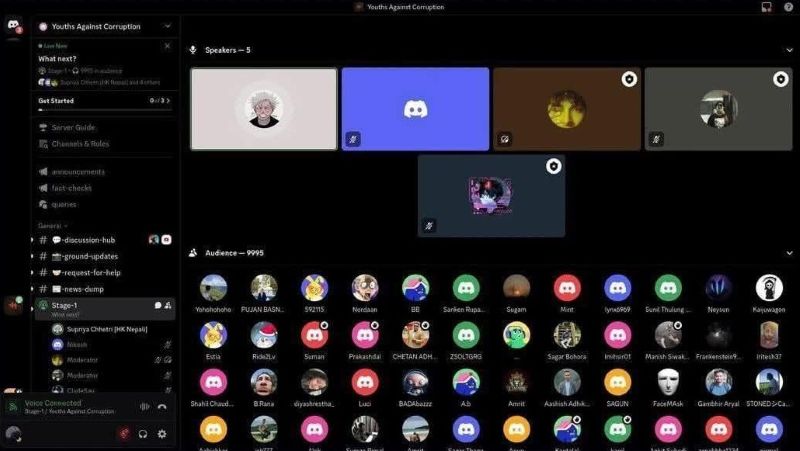Nepals First Social Media Prime Minister: A New Political Era
Nepal has entered a completely new chapter in its political history. For the first time, the country has chosen its interim Prime Minister through social media voting on the Discord app. This unique event has shocked the world and attracted global attention. Experts are calling it a major political experiment that could change how democracies work in the future. Some analysts even believe that Nepal could become the world’s first “Network State.”
Background: Political Change in Nepal
Nepal has faced political instability for decades. Governments have often changed, and people have been frustrated with corruption and slow progress. Recently, young people in Nepal, mostly from Gen Z, started protesting against the ruling Marxist-Leninist government. They wanted transparency, better governance, and a new way to make decisions.
The protests grew bigger and finally forced the existing government to step down. After this, a new system was tried for the first time — electing a leader through Discord, a popular app mostly used by gamers and online communities.
How the Voting Happened
The voting process was surprisingly simple but very powerful.
-
Discord App Setup – A large community of Nepali citizens joined an official Discord server.
-
Candidate Nominations – Different candidates were introduced and shared their visions in live sessions.
-
Open Discussions – Citizens could ask questions directly, debate policies, and share their views.
-
Final Voting – A secure voting system inside Discord allowed people to choose their preferred leader.
After counting the votes, the winner was officially declared the Interim Prime Minister of Nepal. This entire process was done digitally, without physical rallies or expensive campaigns.
Why This Is Important
This event is important for several reasons:
-
Youth Power: It shows how young people can reshape politics using digital tools.
-
Cost-Effective: There was no need for expensive political campaigns, posters, or rallies.
-
Transparency: Everyone could see discussions and voting results openly.
-
Global Example: Nepal has become a model for how digital democracy might work in other countries.
What Is a Network State?
The term “Network State” means a community or country that is built and managed mainly through digital platforms. Instead of physical gatherings, decisions are made online, and communities are connected through the internet.
Analysts believe Nepal’s new step is the beginning of a Network State because:
-
Political power shifted from traditional parties to online communities.
-
Decisions were made collectively through apps like Discord.
-
Leadership was chosen by digital voting instead of physical elections.
This could make Nepal the first country in the world to operate as a true Network State.
Opportunities and Challenges
Opportunities:
-
Increased Participation: People from all regions of Nepal can easily join discussions without traveling.
-
More Accountability: Leaders cannot hide from questions since everything is public.
-
Faster Decisions: Policies can be debated and voted on quickly.
Challenges:
-
Digital Divide: Not all Nepali citizens have internet or smartphones.
-
Security Risks: Online voting systems could face hacking or manipulation.
-
Legitimacy Issues: Some experts question whether a Discord vote can legally replace traditional elections.
Global Reactions
The world is watching Nepal very closely. Technology experts, political scientists, and activists are discussing whether this model could be applied in other countries. Some believe it could inspire other small nations, while others warn that such experiments need strong digital security and legal frameworks.
Big tech companies are also paying attention. If this experiment succeeds, social media platforms may create special tools for political voting and digital governance.
The Voice of Gen Z
The most powerful message from this event is the rise of Gen Z leadership. Young people no longer want to wait decades for political reforms. They are using the tools they already know — apps, social media, and online communities — to shape their future.
For them, Discord was not just a gaming app but a platform for real democracy. This shows how digital natives can transform systems that older generations thought were impossible to change.
Conclusion
Nepal’s decision to elect its interim Prime Minister through Discord is a historic moment. It is not only about one leader but about a completely new way of thinking about governance. If this system grows and succeeds, Nepal might be remembered as the first true Network State in history.
This bold step proves that democracy does not always need big stages, rallies, or paper ballots. Sometimes, it can begin with a simple click on a phone screen.
Nepal has shown the world that the future of politics might not be in parliament buildings — it might be in the cloud.


